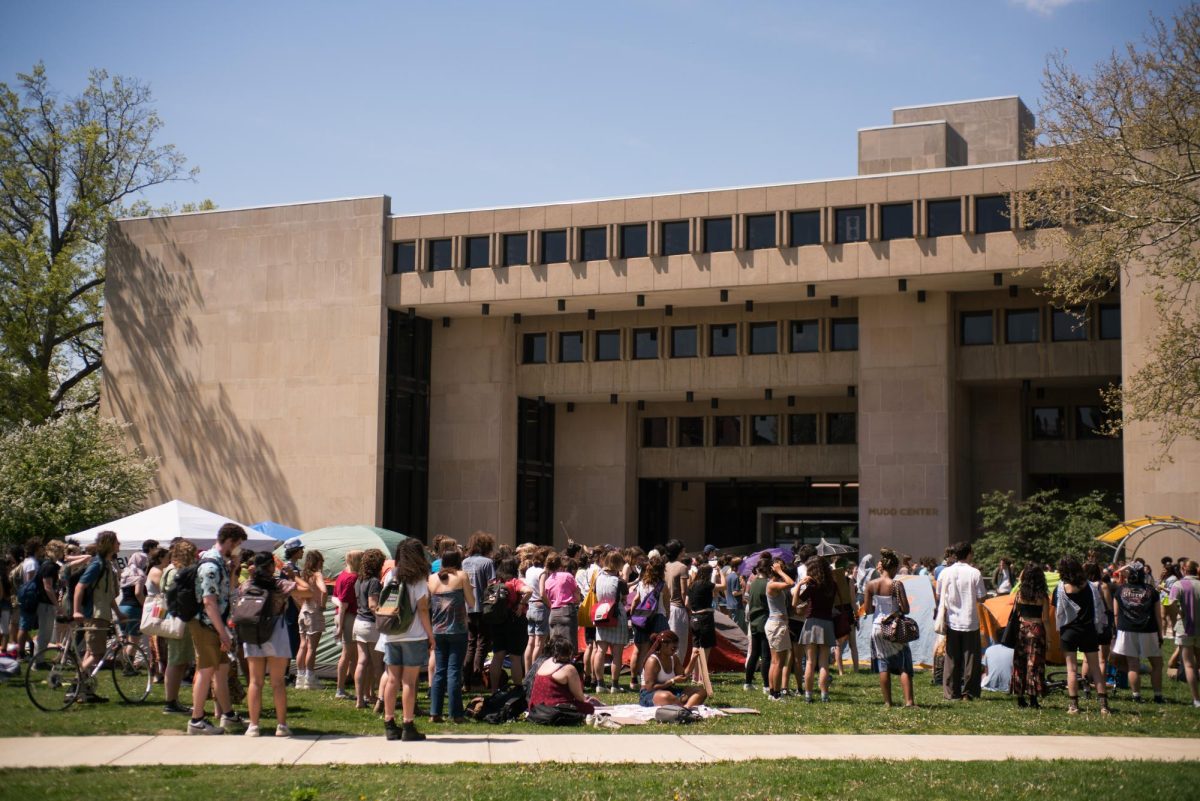In journalism classes, the first-week syllabus and course expectations are usually accompanied by a spiel about the bleak future of the field. We’ve studied the decline of print, the downsizing of newsrooms, and the layoffs of thousands of reporters. Sometimes it feels like a warning, other times a call to action.
Last Saturday, I stood in a room surrounded by Review alumni whose journalistic careers and passions extend far beyond their time at Oberlin. I greeted them as they walked into the Review’s 150th anniversary festivities, while I passed out the special edition of the paper and Review tote bags. Some of them shook my hand, told me their graduating class and, most proudly, their position within the paper from way back when.
I spoke casually to alumni throughout the day whenever possible. When I ran into former Opinions editors or writers, we discovered how similar their jobs were to mine today. Not only were their editorial processes similar, but the general campus attitudes and topics were, too. History repeats itself on and off campus: it was their job to publish how people felt about the world, and now it is mine.
Attempting to network with prestigious writers was intimidating at first. I stood alone on the fringes of students swarming writers, struggling to jump in and find a time to introduce myself. Eventually, I got waved over into a few groups where the conversation began flowing naturally. I couldn’t believe that I was surrounded by NPR contributors and writers for The “New Yorker”, let alone that they were more interested in my work than in sharing their own.
Everyone I spoke to emphasized the importance of hands-on experience, regardless of how different the journalistic landscape is today. There was no journalism program when our guests studied at Oberlin, and there is only a small dedicated concentration in the Writing and Communications department now. These alums’ experience gained at the Review was enough to land them small positions as editors or writers, and they worked their way up from there. At the Review, we learn valuable skills like writing under deadlines, developing editor-writer relationships, and discovering your voice. Every publication thereafter will be different in some ways, but basics learned at the Review apply everywhere.
At the career panel, I felt inspired to live out dreams I didn’t even know I had. Despite several of the guests speaking on the grueling process of writing a book, I began fantasizing about being a longform author. It seems liberating to have more than 800 words to express myself and follow multiple threads throughout a story. Every career path discussed or displayed was more tempting than the last, and nothing felt too far out of reach for my future.
Even our panel’s special guests left us with words of caution and encouragement. In the 21st century, there is far less homogeneity in the field — the traditional newspaper trajectory is less common today because there are new routes to take. Different paths are emerging, but with that comes less security and recognition. I don’t disregard these cautionary tales — I take them to heart, as they will soon be my reality. However, I am learning both on the job and in the classroom how to confront these challenges.
I have the honor of experiencing two different journalistic spheres at Oberlin. The support I’ve received from the Journalism Integrative Concentration has been overwhelming; this is only my first semester as Review staff, but the experience and connections I’ve gained are also incredible. I am grateful for these two separate worlds coming together to create an immersive experience for everyone touched by the Review.
At the anniversary gala, my co-editor sat on my right and friends from my journalism classes on my left. Review alumni stopped by our table periodically to learn our names and share a joke or anecdote from their days at the paper. I couldn’t help but smile at the sense of community that naturally came to all of us, even those of us meeting for the first time.
As daunting as it may seem to actively move toward a rapidly declining career path, I am unafraid. There’s no less of a need for journalism than there was 30 years ago, and there are still plenty of people who want to pursue it. The career trajectories may not be as straightforward as they once were, but I want to believe our guests who told us that we’re in the right place, doing the right things. We can be realistic about the future of journalism without being strictly defeatist.
As my friends, family, and now Peter Baker have told me, journalism is not something you do for the money. It’s a labor of love, and one I’m willing to take on for the duration.










